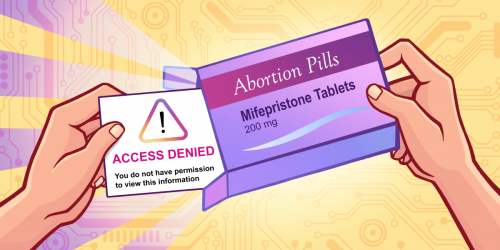In July 2009, South Korea became the first country to introduce a graduated response or "three strikes" law. The statute allows the Minister of Culture or the Korean Copyright Commission to tell ISPs and Korean online service providers to suspend the accounts of repeated infringers and block or delete infringing content online. There is no judicial process, no court of appeal, and no opportunity to challenge the accusers.
The entertainment industry has repeatedly pointed to South Korea as a model for a controlled Internet that should be adopted everywhere else. In the wake of South Korea's implementation, graduated response laws have been passed in France and the United Kingdom, and ISPs in the United States have voluntarily accepted a similar scheme.
But back in Korea, the entertainment industry's experiment in Internet enforcement has been a failure. Instead of tackling a few "heavy uploaders" involved in large scale infringement, the law has spiraled out of control. It has now distributed nearly half a million takedown notices, and led to the closing down of 408 Korean Internet users' web accounts, most of which were online storage services. An investigation led by the Korean politician Choi Jae-Cheon showed that half of those suspended were involved in infringement of material that would cost less than 90 U.S. cents. And while the bill's backers claimed it would reduce piracy, detected infringement has only increased as more and more users are subject to suspensions, deletion, and blocked content.
This Wednesday, Korea's National Human Rights Commission recommended that the three strikes law be re-examined, given its unclear benefits, and its potential violation of the human rights to receive and impart information and to participate in the cultural life of the community.
Mr. Choi and twelve other members of the Korean National Assembly have taken the first step in that reform. Last week, they announced plans to introduce a law that would repeal three strikes, as well as ensure that ISPs have no need to pro-actively spy on their own users for signs of copyright infringement. Newly formed Korean digital rights group, OpenNet, along with is working hard to drum up political support for this initiative.
The rightsholders have reacted with alarm to the prospect of copyright reform in Korea, and have already begun heavy lobbying for the abandonment of Choi's initiative. They badly need Korea to maintain this law, even if it damages Korea's own economy and their citizen's civil liberties. It's not surprising that they have already been making frequent calls and meetings with Mr. Choi and other Korean politicians. If Korea rejects three strikes as a disaster, why should anyone else maintain its injustices?
Korean lawmakers need to stand firm. We, along with many other major international Internet rights groups have written to strongly support Mr. Choi's brave stand for his own citizens. His stand is based on thorough investigations of Korean Internet users' experience of this law. We hope that his group's reform will prevail, and that Korea will be freed of the dubious benefits and growing disadvantages of being the laboratory for this discredited experiment.
We stand with Access, Association for Progressive Communications, Creative Commons Korea, Demand Progress, Fight for the Future, Free Press, Free Software Foundation, Global Voices Advocacy, GreenNet, Japan Computer Access for Empowerment (JCAFE), Japan Computer Access Network (JCA-NET), LaborNet, La Quadrature du Net, OpenMedia, ONG Derechos Digitales, and Public Knowledge to support the repeal of the three strikes law in the Republic of Korea.
The letter we sent Korean lawmakers is below.
~
Dear Honorable Member of the National Assembly:
Internet access is vital to people's livelihood, education, health, and engagement in social, cultural, and civic activities. However, recent copyright enforcement measures neglect the heavy implications of disconnecting and limiting users' online access.
Graduated response, or so-called "three-strikes" policies punish users following repeated accusations of copyright infringement. Such regulations frequently have minimal or no judicial involvement, depriving their victims the right to due process, and subsequently free expression, freedom of association, and innovation — all of which are fundamental to social and economic progress. Internet restriction policies create a legal imbalance that gives content owners unfair and disproportionate enforcement rights at the expense of Internet users' rights.
The Republic of Korea was the first country to implement a three-strikes policy and its harmful impact on Internet users is already apparent. In the past three and a half years since its enactment, 468,446 take-down notices have been sent to users, and it has shut down 408 website accounts. Under its current copyright law, an administrative body has the power to disconnect Internet service without a court order. The chilling effect this has had for users is immeasurable, but its impact is already apparent.
The Republic of Korea is at the forefront of technological development with one of the most Internet-connected populations in the world. Therefore it is especially crucial that Korean lawmakers show their leadership in opposing online censorship and to position themselves as strong defenders of digital civil liberties.
We are Internet freedom and free speech groups dedicated to the rights of all people to access cultural and educational resources, to enjoy a free and open Internet, and to benefit from open innovation. We jointly sign this letter in support of National Assembly Member Choi Jae Cheon's proposed bill to completely remove the three-strikes and ISP monitoring and content filtering provisions from the Korean Copyright Act.
We are happy to continue the conversation with the Republic of Korea's National Assembly Member, and provide you with information, evidence, and reports from the rest of the world in support of this initiative.









